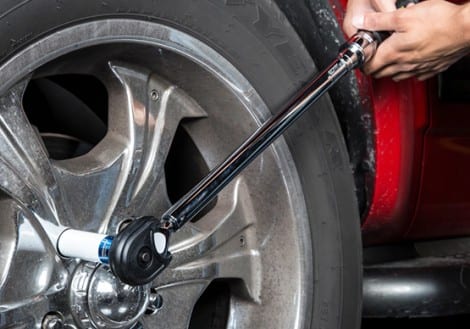 By Bob Currie, Recreational Boating Safety Specialist
By Bob Currie, Recreational Boating Safety Specialist
U. S. Coast Guard Auxiliary Base Galveston Flotilla
In 1975, the Beach Boys released their hit song, “Good Vibrations.” While it is indeed a catchy tune, it doesn’t apply well to boats, as there are no good vibrations on a boat. Vibrations are what loosen nuts and bolts. Another song that does apply is one from 1968 by Archie Bell and the Drells (“from Houston, Texas”): “Tighten Up.” If you aren’t familiar with the song, I recommend that you check it out. Let’s see how it applies to our boats and trailers.
The Base Galveston Flotilla of the US Coast Guard Auxiliary operates out of the US Coast Guard base on Galveston Island. They aid the Coast Guard by providing maritime observation patrols in Galveston Bay; by providing recreational boating vessel safety checks; and by working alongside Coast Guard members in maritime accident investigation, small boat training, providing a safety zone, Aids to Navigation verification, cooking in base and station galleys and aboard cutters; and on the Coast Guard Drone Team.
Road Vibrations
You can get accustomed to vibrations to the point that you don’t notice them, but there are several vibrations that work to loosen nuts and bolts on your boat and trailer. Road vibrations, such as the “bap-bap-bap” sounding vibrations from concrete expansion joints, can work to loosen any and every nut or bolt on your boat and trailer, with the most commonly loosened nuts being your lug nuts. If you will read your owner’s manual you will see a warning about tightening your trailer lug nuts within the first few hundred miles, especially on galvanized trailers. The galvanized metal tends to compress and the lug nuts become loose.  This process applies to all other nuts and bolts on your trailer as well. I have seen all sorts of failures due to nuts becoming loose and falling off, including lost wheels, lost boat guides, axle springs dropping, and trailer boards falling off. Tighten Up!
This process applies to all other nuts and bolts on your trailer as well. I have seen all sorts of failures due to nuts becoming loose and falling off, including lost wheels, lost boat guides, axle springs dropping, and trailer boards falling off. Tighten Up!
Engine Vibrations
Engine vibrations are the most common source of loose nuts and bolts on your boat. Car engines are mounted on flexible rubberized engine mounts that reduce both noise and vibrations, but boat engines are fix-mounted to the transom. For this reason, every engine vibration is transferred to every part of the boat, and those vibrations over even a short time can loosen the most important nuts and bolts, leaving you stranded on the water or on the side of the road. When your engine starts flopping because you have lost a mounting bolt, you aren’t going to be able to ask your wife to pass you one of those 5 ½ inch 5/16-18 thread size transom mounting bolts in the spare parts bin under the seat. No, you need to tighten those before you get out on the water. As Arnold said in “Kindergarten Cop,” “Do it now!”
Metal Compression
Even the hardest metals will compress over time when the right amount of pressure is applied. Softer metals compress easier, and coated metals compress even easier. When the metal compresses beneath a nut or bolt, the nut or bolt becomes loose. One result is that the nut or bolt backs off or out and you lose an important part of your boat. Another result is that the area that is loosened begins to vibrate, resulting in metal fatigue and a broken part. One of the most important things you should check for loosening is your trailer hitch. Over time it could loosen enough to where the trailer is merely resting on the ball instead of being attached to it. You really don’t want to rely on your safety chains to save you.
What’s the Buzz?
Unless you have a new boat, you know how your boat sounds when you are operating it. If you begin to notice a buzzing sound, the chances are great that something somewhere is loose. Rather than spending hours and hours trying to replicate the sound so you can locate the source, it is easier to just go on a tightening mission for the whole boat. You WILL find some loose nuts and bolts. Don’t let that buzz develop into a rattle. At that point you are right at the point of failure. New noises never signify an improvement.
Let’s Get Torqued
In physics and mechanics torque is the rotational equivalent of linear force. When you attach a nut to a bolt you run the nut up the threads until you meet resistance. At this point you have not used the principle of torque. Once you apply pressure to the nut beyond the initial resistance you are applying torque to the nut. We call this just plain old “tightening.” Tighten up!
Well okay, but how much do we tighten? With every nut and bolt that you use, it is imperative that you don’t over-tighten or under-tighten it. If you tighten some nuts as tightly as you can using your full body strength, there is a pretty good chance you will strip the threads of the nut or bolt. If you under-tighten this results in a fastener that could come loose as you cruise through the water, or it could result in you losing a wheel on your trailer as you drive down the road. An over-tightening can result in staying home, but an under-tightening can lead to a catastrophic failure resulting in injury or death.

The safest way to tighten important nuts and bolts is with a torque wrench. Many important fasteners have specified torques to which they should be tightened. The most important fasteners to tighten with a torque wrench are lug nuts and engine mounting bolts. Neither have lock washers and depend upon being properly tightened with a torque wrench. If you work on engines then you know that just about every nut and bolt has a specified torque to which it should be tightened. Although there are different ways of measuring torque, in the U.S. we use the foot-pound as our unit of measure for torque. It’s an easy concept: one foot-pound is the application of one pound of pressure to the end of a wrench that is one foot long. Torque wrenches have a dial setting for dialing in the amount of torque you want to apply. A typical torque wrench can measure between 25 and 250 foot-pounds of torque.
Lock Washers and Lock Nuts
Some fasteners use lock washers or lock nuts to keep them from loosening. If you remove those lock washers or lock nuts more than a couple of times, you run the risk of weakening the system so that they no longer function. If a lock nut no longer has good resistance or if a nut backs off even though it has a lock washer, it is time to replace the lock nut or lock washer.
Tighten Up Check List
The rule is check everything, but some items are more important than others. Be sure to line up the proper tightening tools before you get started. Although some standard tools will work on metric fasteners, you don’t want to mix metric and standard up; you will just end up damaging the fasteners and may even ruin them to the point where they have to be replaced. Read your owner’s manual before beginning your tightening mission. You will not only get a list of fasteners to check, but you should also get their torque specifications. Here is a list of important items to check for tightness:
- Trailer lug nuts
- Trailer hitch for proper adjustment
- Trailer spring mounts
- Trailer board mounts
- Trailer guide mounts
- License plate bracket
- Trailer winch mounts
- Boat towing eye (I found mine loose on the day I bought the boat)
- Motor mount bolts
- Seat mounts
- Console fasteners
- Steering wheel nut
- Battery mounts
- Cleats
- Oil filter (you will be stranded if that falls off)
- Windshield
- Railings
- Rub rails
- GPS and transducer mounts
- Trim tab mounts
Summary
Keep things properly fastened on your boat and trailer by performing checks to ensure that all fasteners are tight. Use a torque wrench where appropriate to keep from under-tightening or over-tightening.
For more information on boating safety, please visit the Official Website of the U.S. Coast Guard’s Boating Safety Division at www.uscgboating.org . Questions about the US Coast Guard Auxiliary or our free Vessel Safety Check program may be directed to me at [email protected]. I am available to perform free Vessel Safety Checks, and I will come to your location to perform them. SAFE BOATING!
[April-26-2021]

 Posted in
Posted in 























